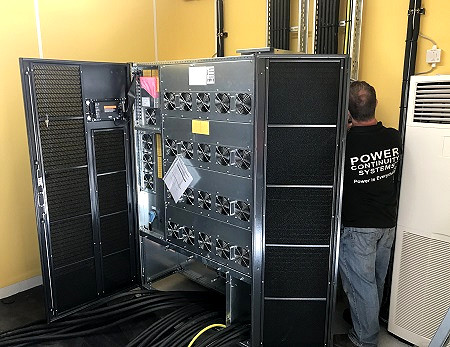Essential Guidelines for Generator Installation, Servicing, and Maintenance
In an era where power outages can disrupt daily life and business operations, having a reliable backup power source is crucial. Generators play a pivotal role in providing uninterrupted power supply during unforeseen outages. However, merely owning a generator isn’t enough; proper installation, regular servicing, and meticulous maintenance are imperative to ensure its efficiency and longevity.
Generator Installation: A Foundation for Uninterrupted Power
The installation of a generator demands precision and expertise to guarantee seamless functionality when needed. Here’s a comprehensive guide to ensure a successful generator installation:
- Professional Assistance: Employ certified professionals for installation. They evaluate your power needs, select an appropriate generator size, and ensure compliance with local building codes.
- Location Matters: Choose an outdoor location for the generator installation to avoid carbon monoxide build-up. Adequate ventilation and distance from doors and windows are crucial safety considerations.
- Transfer Switch Installation: An automatic transfer switch facilitates a smooth transition from the main power supply to the generator. It prevents electrical hazards and ensures a consistent power supply to essential circuits during an outage.
- Fuel Source: Assess the fuel source best suited for your needs—whether natural gas, propane, or diesel. Adequate fuel storage and accessibility are essential factors to consider.
Generator Servicing and Maintenance: Upholding Longevity
Regular servicing and maintenance are the backbone of generator functionality and durability. Here’s a breakdown of key practices:
- Scheduled Inspections: Regularly schedule professional inspections to identify potential issues and ensure optimal functionality. This includes checking fuel levels, examining connections, and inspecting components for wear and tear.
- Oil and Filter Changes: Follow manufacturer recommendations for oil and filter changes. Clean oil ensures smooth operation and prevents engine damage.
- Battery Maintenance: Check and maintain the generator’s battery regularly. Clean terminals, ensure proper connections, and replace batteries as needed to guarantee prompt startups.
- Load Bank Testing: Periodically conduct load bank testing to verify the generator’s capacity to handle its designated load. This test ensures optimal performance during emergencies.
- Coolant and Fuel System Checks: Regularly inspect and maintain the coolant and fuel systems. Ensure proper levels, check for leaks, and use high-quality fuel additives to prevent fuel degradation.
- Exercise Routine: Run the generator periodically to maintain its functionality. Regular exercises prevent internal corrosion and keep components lubricated.
Benefits of Proper Servicing and Maintenance
Investing time and resources in generator servicing and maintenance yields significant benefits:
- Reliability: Regular maintenance minimizes the risk of breakdowns during power outages, ensuring a continuous power supply when needed the most.
- Cost-Efficiency: Proactive maintenance reduces the likelihood of major repairs, which can be costly. It also extends the lifespan of the generator, ultimately saving money in the long run.
- Safety Assurance: Proper maintenance minimizes the risk of accidents, ensuring the safe operation of the generator and protecting both property and individuals.
- Optimal Performance: Well-maintained generators perform efficiently, providing consistent power output and reducing the risk of damage to connected appliances or machinery.
In conclusion, installing a generator and overlooking its servicing and maintenance can lead to unwarranted inconveniences during power outages. Prioritizing professional installation, routine servicing, and meticulous maintenance ensures that your generator remains a reliable source of backup power, safeguarding both productivity and safety.
Taking proactive steps to care for your generator guarantees peace of mind, knowing that you’re well-prepared to handle any unforeseen power interruptions.

Recent Post
What is The Meaning of a Medusa Tattoo?
January 9, 2025
The Meaning of Encanto in Spanish and Origin
January 4, 2025
Equivalent Phrases For “Including But Not Limited To”
December 30, 2024
How To Make Weekend Greetings More Fun?
December 30, 2024
10 Modern Sayings Similar To “Be There Or Be Square”
December 30, 2024








